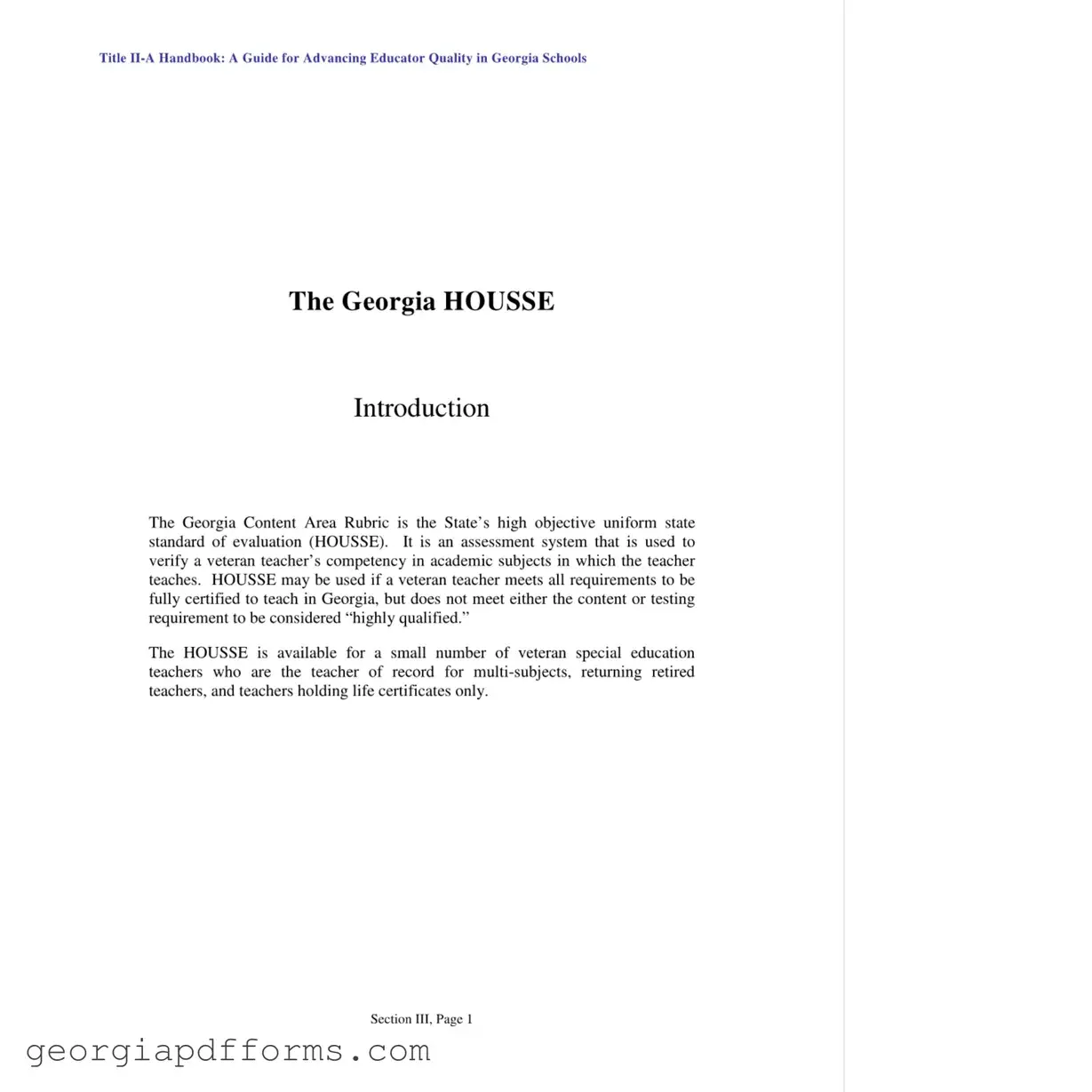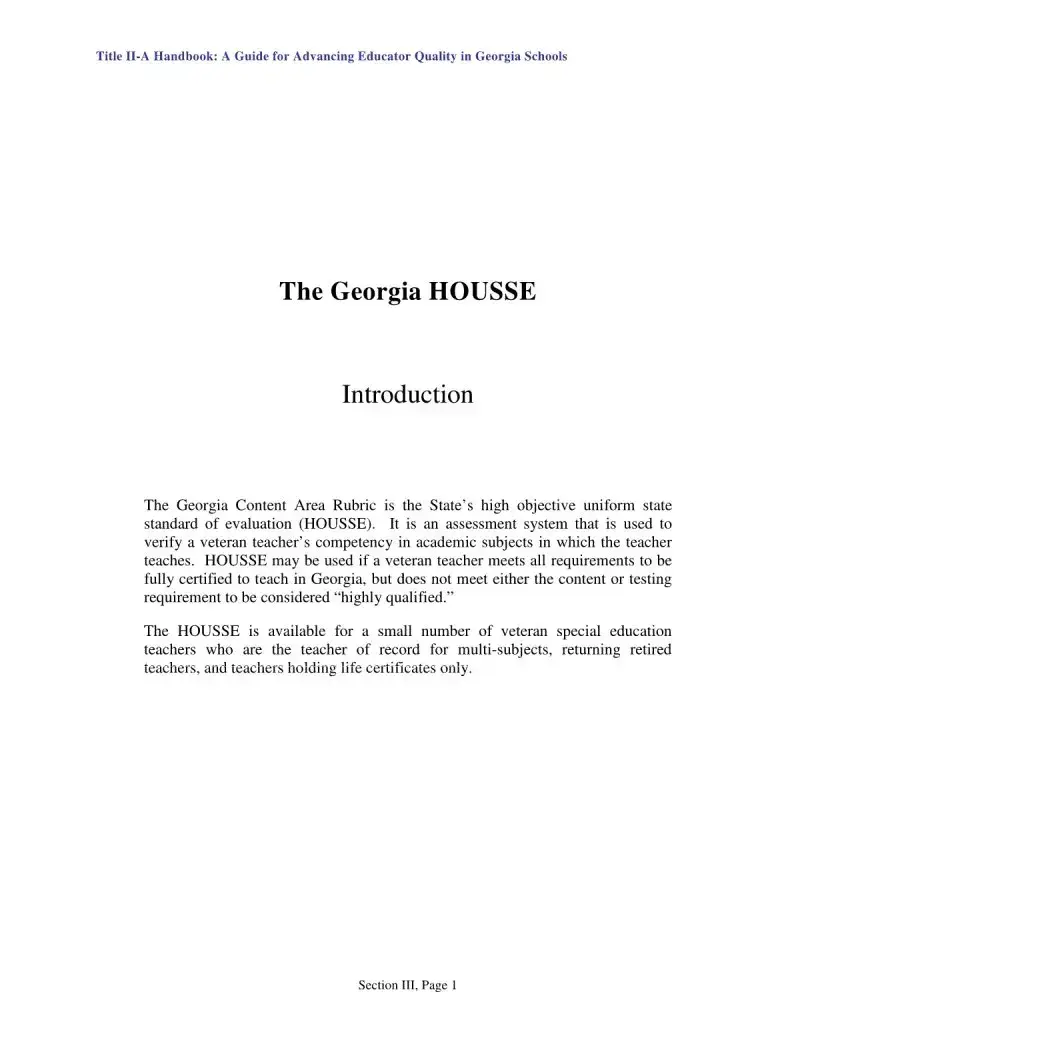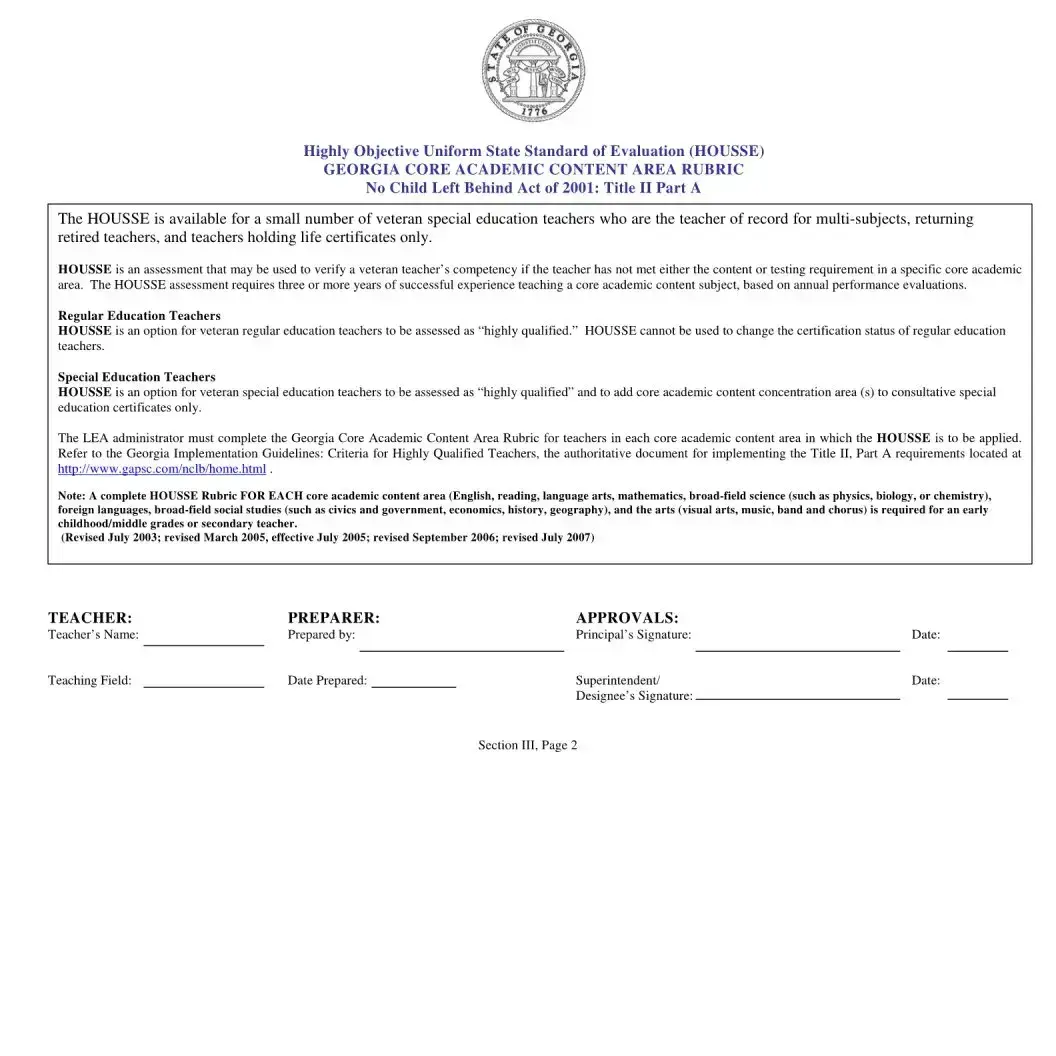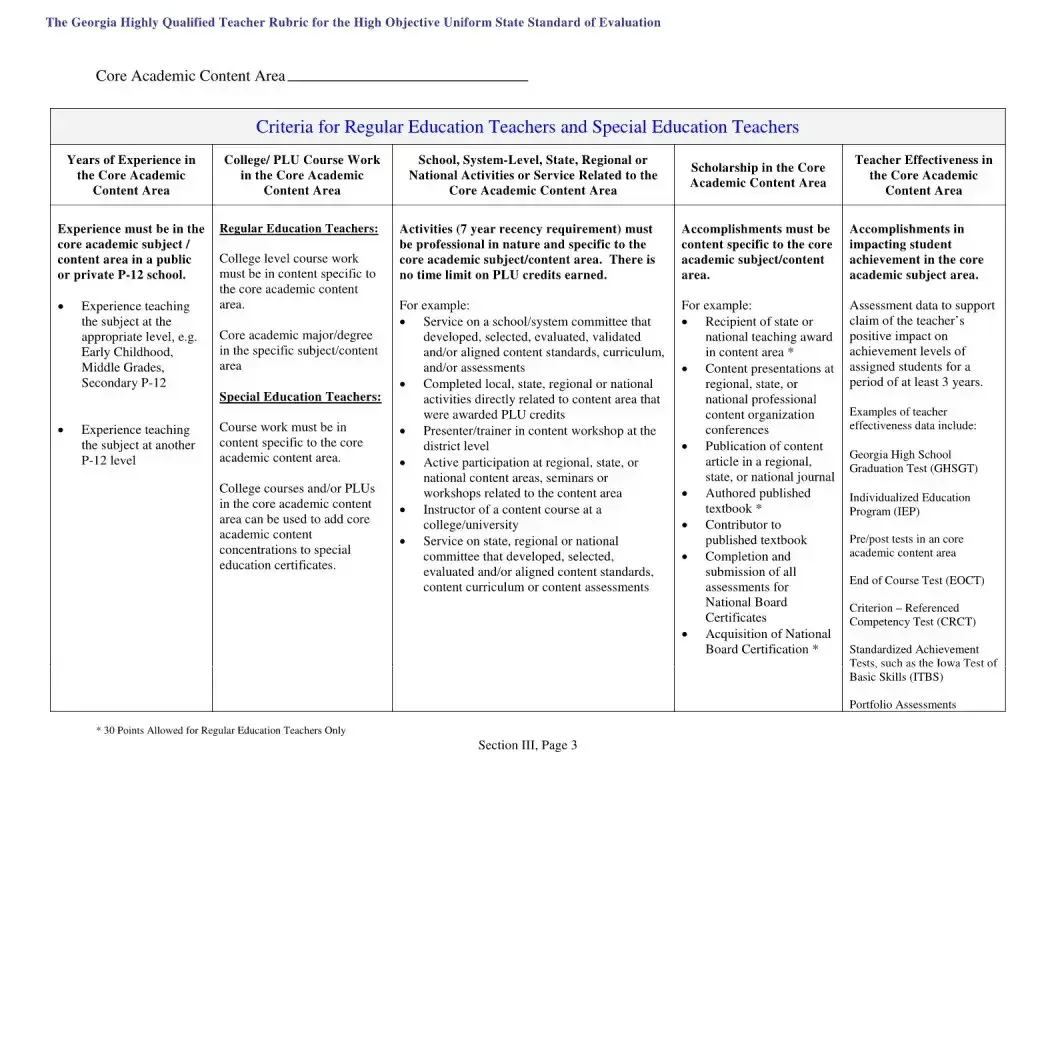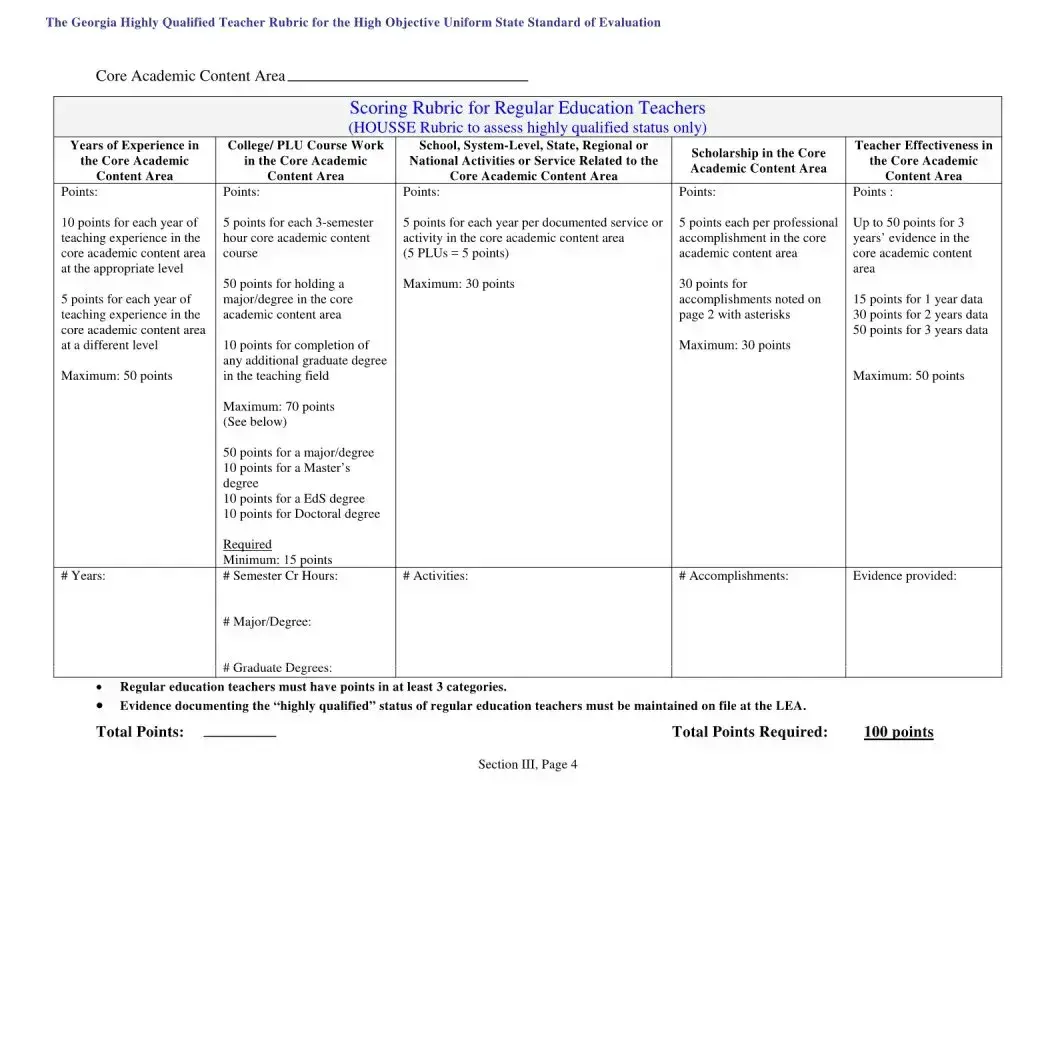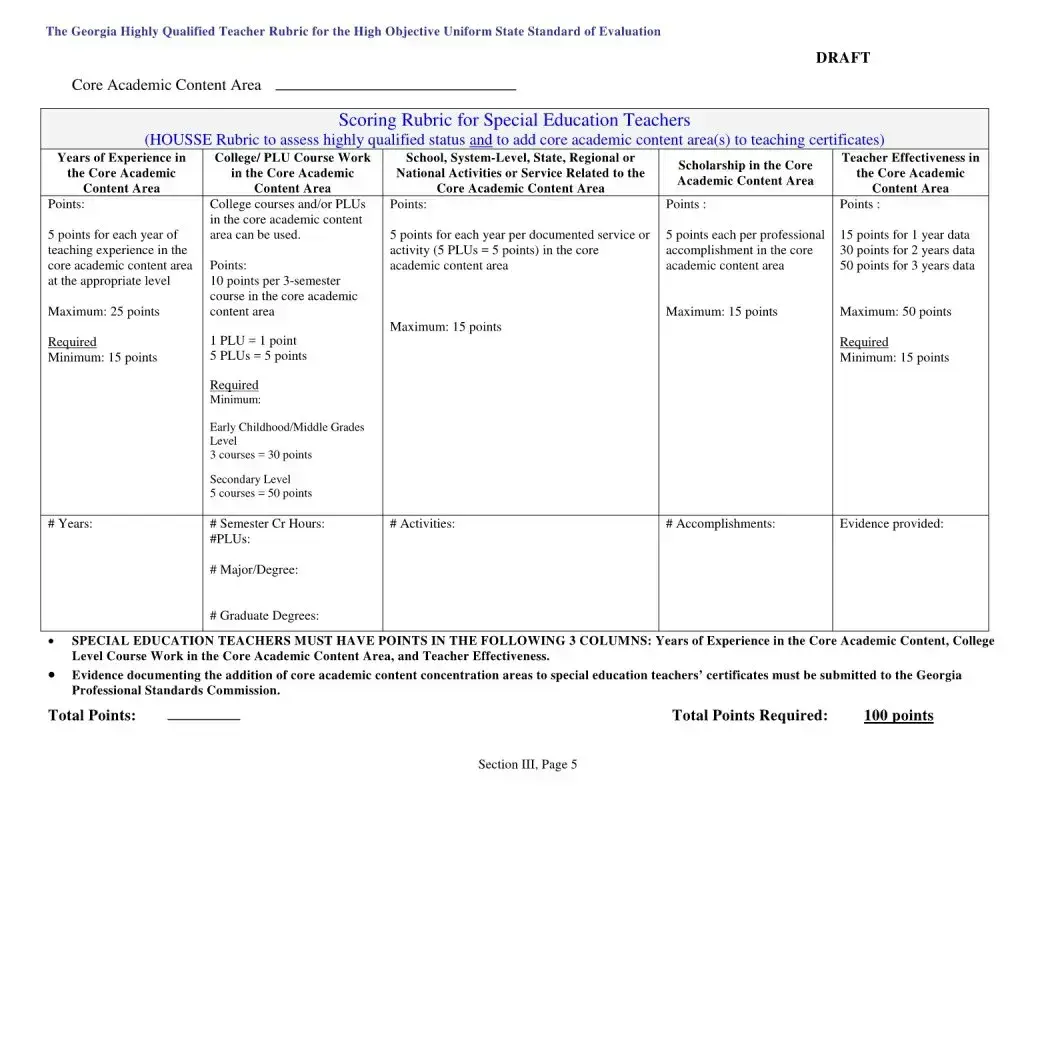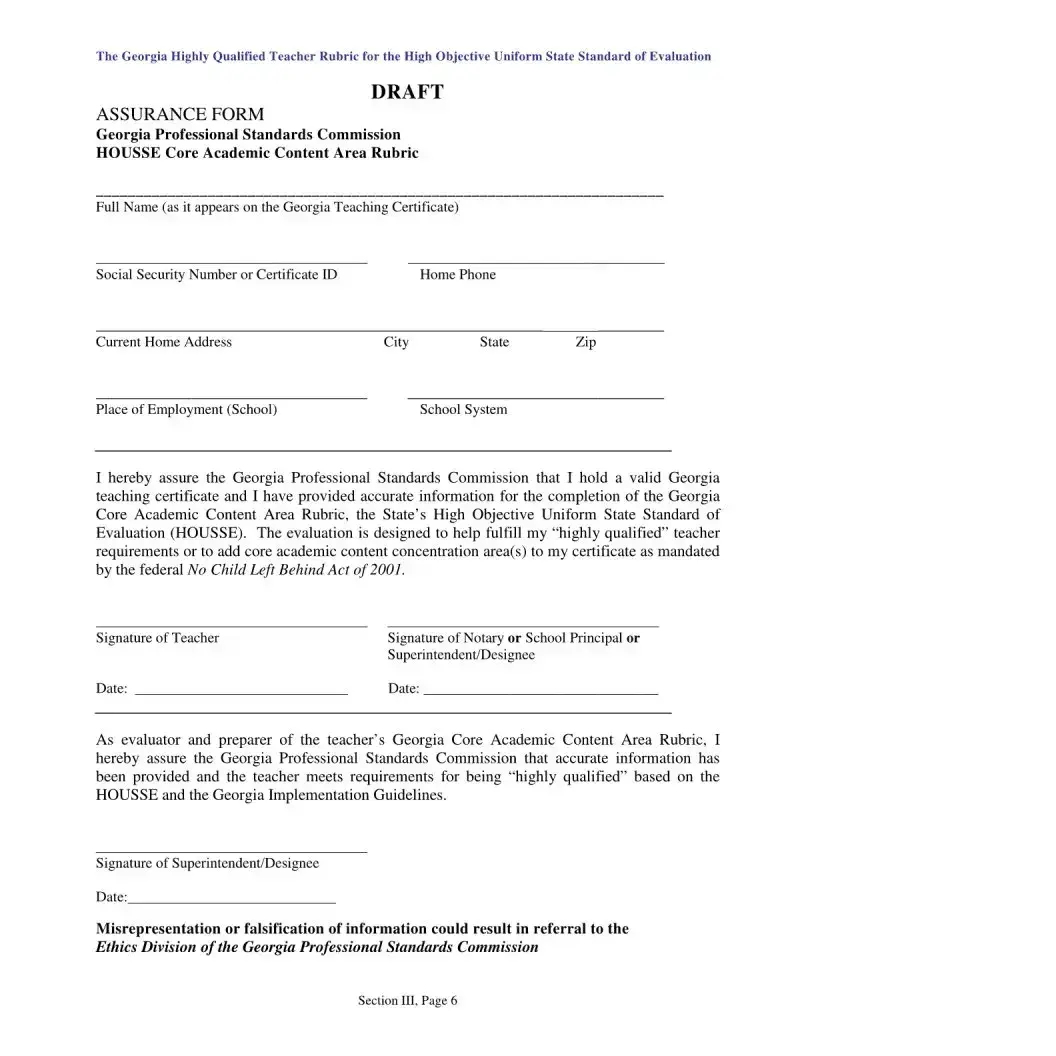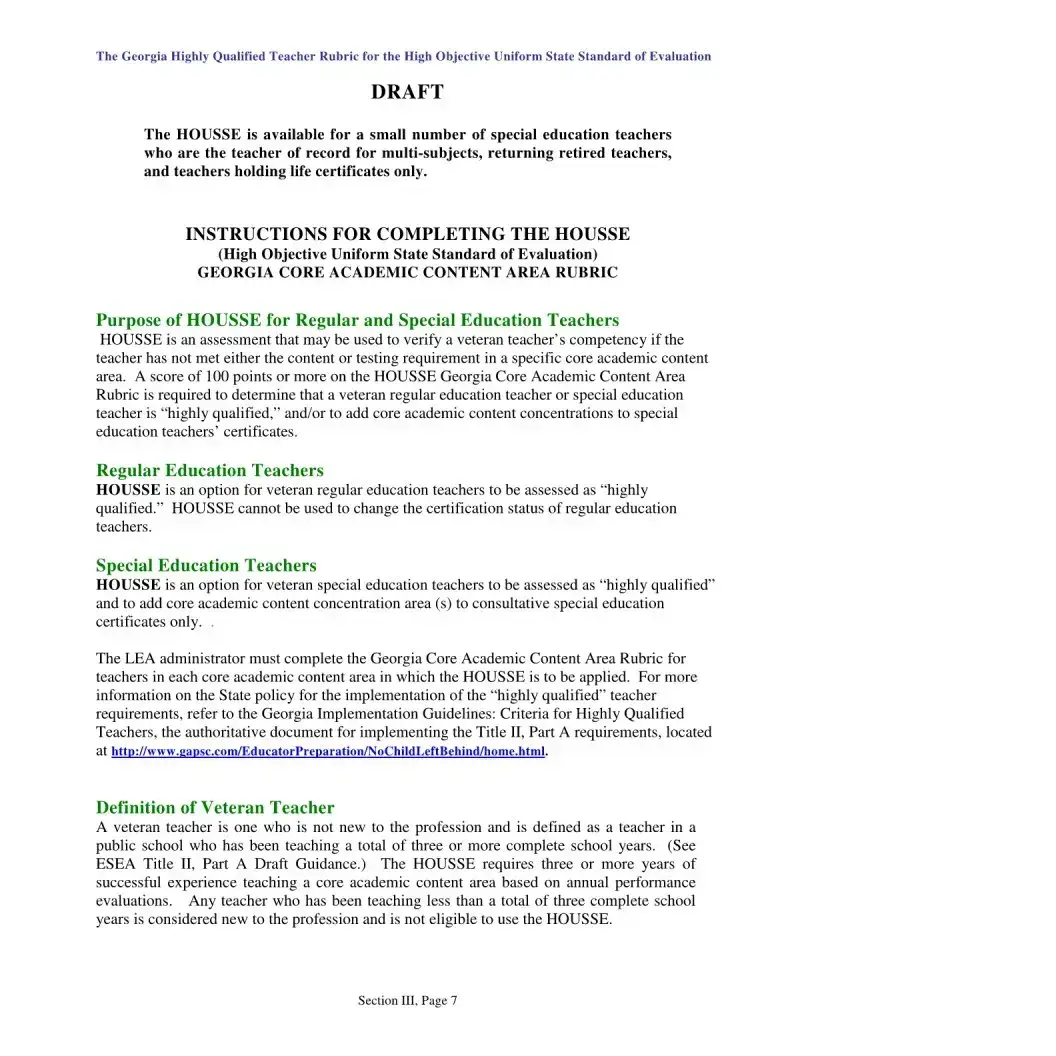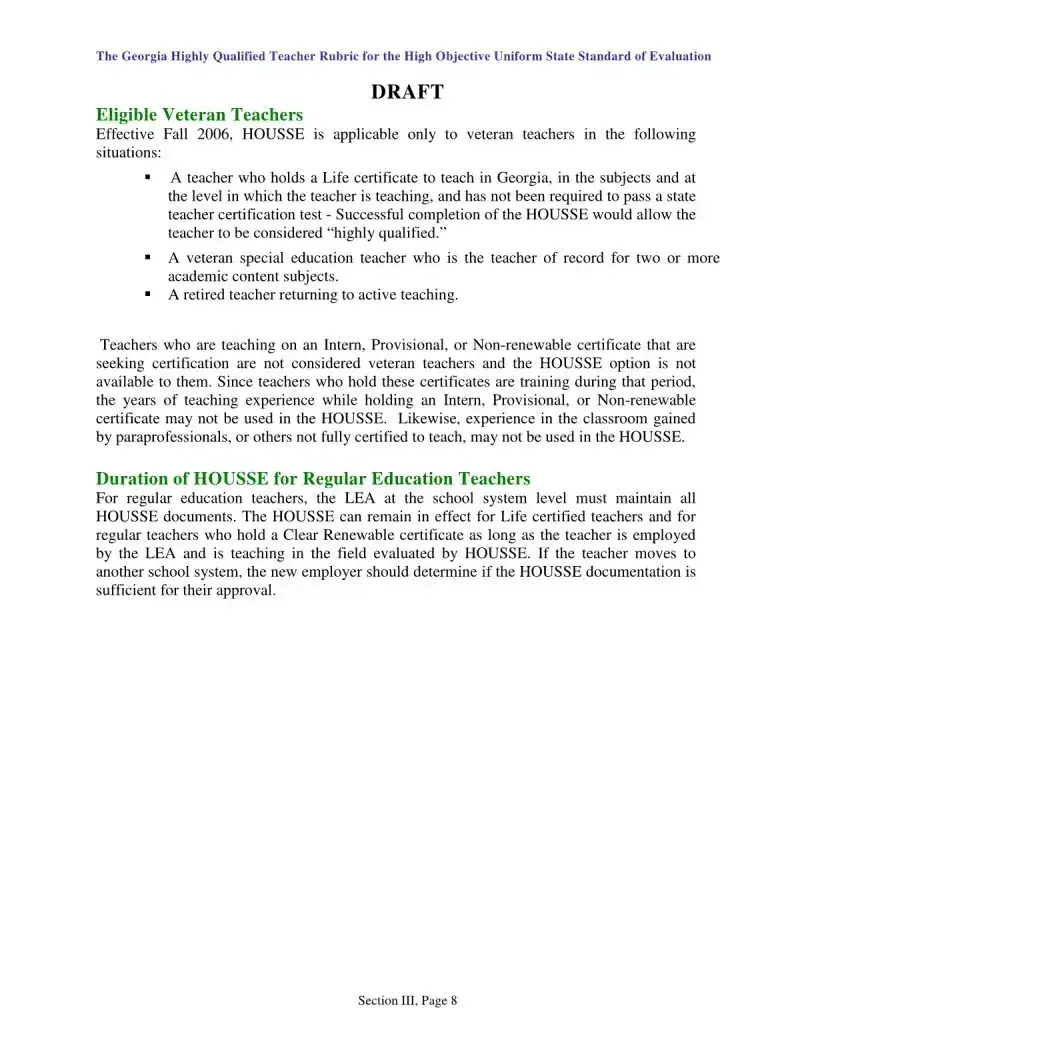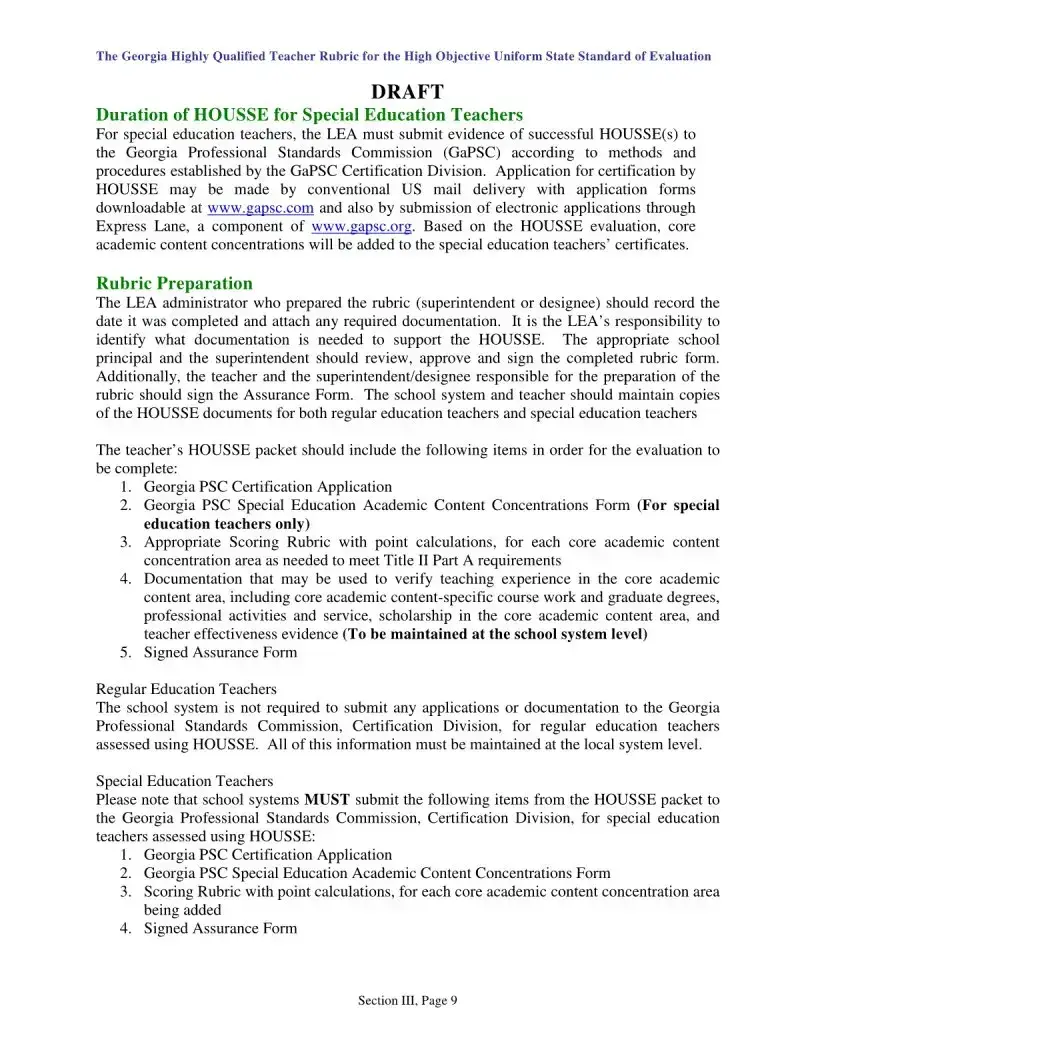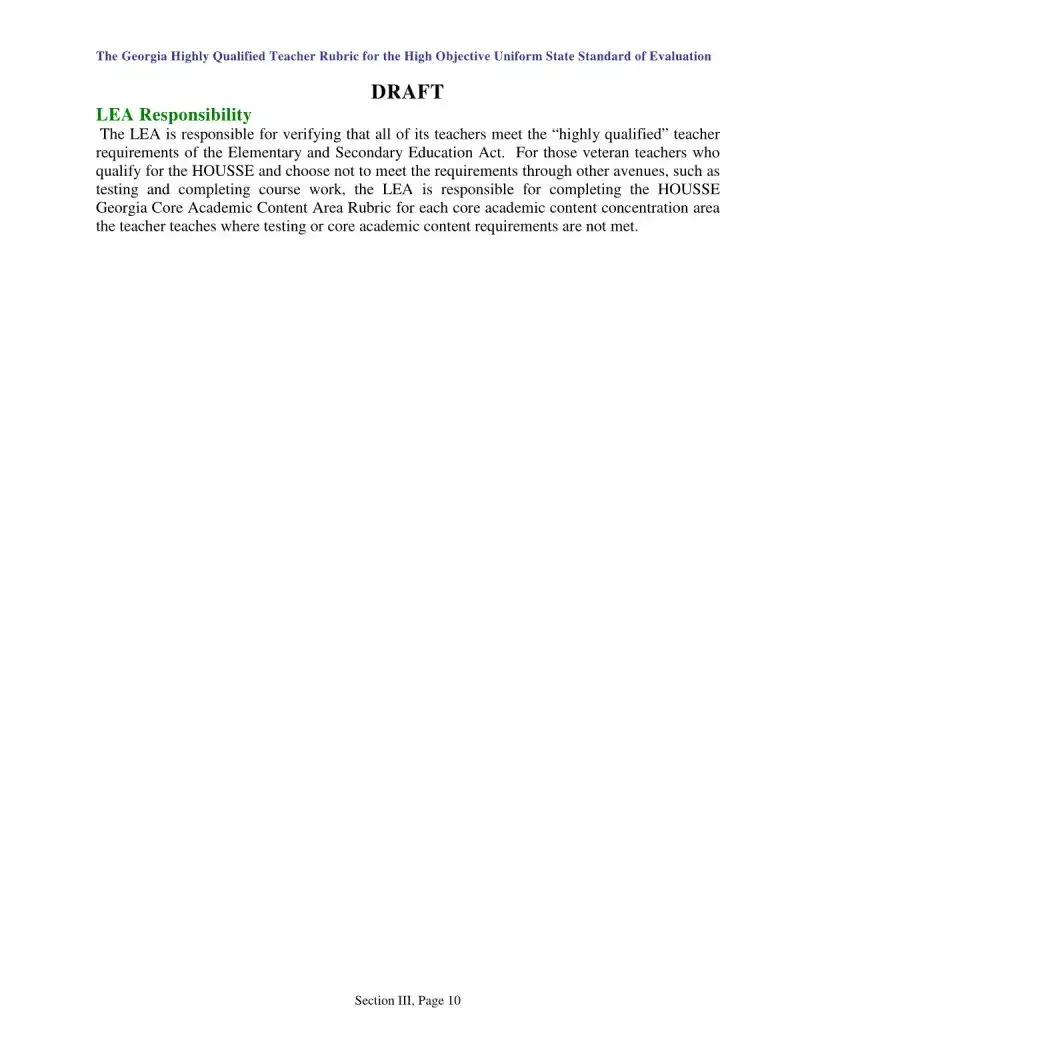What is the purpose of the HOUSSE Rubric Georgia form?
The HOUSSE Rubric Georgia form is designed to assess and verify the competency of veteran teachers in core academic subjects. It is particularly useful for those who do not meet the content or testing requirements to be classified as "highly qualified." The assessment applies to a limited group of educators, including veteran special education teachers, returning retired teachers, and those holding life certificates.
Who can use the HOUSSE assessment?
The HOUSSE assessment is available for veteran teachers who have at least three years of successful teaching experience in a core academic content area. This includes both regular education and special education teachers. However, it is important to note that regular education teachers cannot use HOUSSE to change their certification status, while special education teachers can use it to add core academic concentrations to their consultative certificates.
What criteria must teachers meet to be assessed using the HOUSSE Rubric?
Teachers must demonstrate experience in the core academic subject area they wish to be evaluated on. This experience should be from teaching in public or private P-12 schools. Additionally, they must provide evidence of relevant college coursework and participate in professional activities related to the content area. The rubric requires documentation of achievements that impact student learning over a minimum of three years.
Are there specific subjects covered by the HOUSSE Rubric?
Yes, the HOUSSE Rubric covers a variety of core academic subjects. These include English, reading, language arts, mathematics, broad-field science (like physics or biology), foreign languages, broad-field social studies (such as civics or history), and the arts (including visual arts and music). Each subject requires a complete HOUSSE Rubric to be filled out for proper assessment.
How does the assessment process work?
The assessment process begins with the local education agency (LEA) administrator completing the Georgia Core Academic Content Area Rubric for each teacher. This involves evaluating the teacher’s experience, coursework, professional activities, scholarship, and effectiveness in their respective content areas. The completed rubric is then used to determine whether the teacher meets the criteria for being considered "highly qualified."
What documentation is required for the HOUSSE assessment?
Teachers must provide various forms of documentation, including proof of teaching experience, records of college coursework, and evidence of professional activities related to their content area. Additionally, they should include data that demonstrates their effectiveness in improving student achievement. This documentation is crucial for the LEA administrator to accurately assess the teacher’s qualifications based on the HOUSSE criteria.
